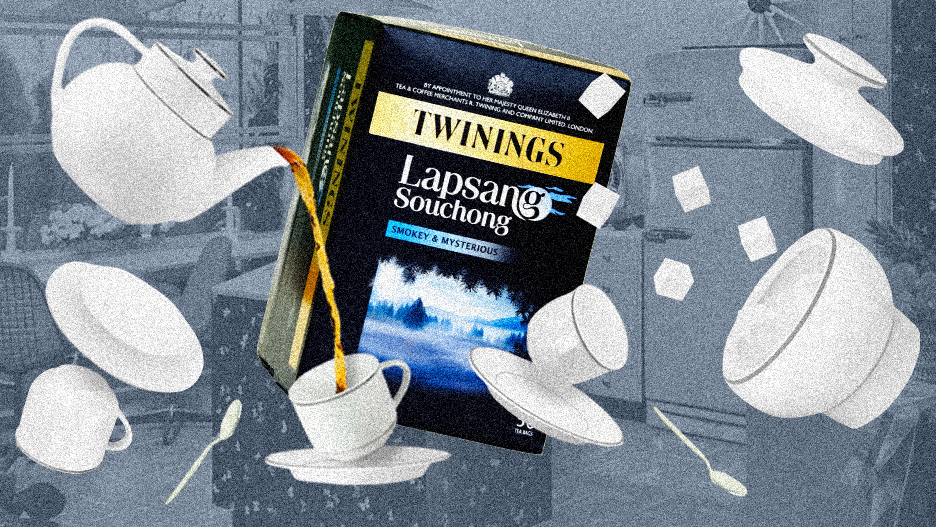Tea drinkers erupted in a fit of caffeinated rage on Monday; kettle cosies were dashed across the kitchen, bone china was placed down hastily and many people were all very cross. Twinings sparked the uproar after axing its Lapsang Souchong tea and replacing it with something called ‘Distinctively Smoky’. It has been met with near universal disapproval and branded a stain on the company’s 300 year history.
Famously Winston Churchill’s brew of choice, Lapsang Souchong is a centuries-old tea thought to have originated in the Wuyi Mountains in the Fujian Province of China, with the first record of it in 1646. Legend has it Wuyi locals fleeing Qing soldiers dried fresh batches of tea over fire to expedite their escape. Lapsang’s signature aroma and sweet notes of pine resin are a result of this process.
Legend has it Wuyi locals fleeing Qing soldiers dried fresh batches of tea over fire to expedite their escape
The imitation blend has been likened to ‘old cigarettes’, ‘stale cigarettes’, ‘ashtrays’, ‘fake bacon bits’ and ‘glue’. It seems to have missed the mark. Twinings’s Lapsang cost £12.50 for 100g; Distinctively Smokey, is around ten quid less. But it has bastardised the product and the consensus is people would rather pay more for the real thing.
Others said Distinctively Smoky was ‘like sipping a swimming pool after a chemical incident’, hmm. Twinings said it would pass the feedback on to its Master Blenders. The drama after Twinings complained of ‘sourcing challenges’, prompting the ‘difficult decision’ to replace Lapsang with a new blend of teas from around the world ‘including China’.
Despite its origins, Lapsang is ‘seen as a quintessentially British brew,’ Henrietta Lovell, who curates tea lists for hotels like Claridges, told the Telegraph. ‘It is more popular among older tea drinkers who grew up drinking stronger loose leaf tea,’ she added.
Indeed, it’s heartwarming to see Brits getting vexed over a cuppa; we are still a nation of tea lovers. George Orwell with his eleven golden rules for tea-making, would be proud. But until Twinings brings Lapsang back, here’s a handful of places you can try:
Fortnum & Mason: Lapsang Souchong Loose Leaf Tin (£10.95/125g)
‘The plucked leaves are withered over pine fires, pan-dried, rolled and placed in bamboo baskets, then smoked over smouldering pinewood fires,’ according to F&M. It pairs well with cheese and chocolate cake.
Brew Tea Company: Lapsang Proper Tea Bags (£32/100 bags)
‘This black Chinese tea has been smoked for deep, earthy goodness, but it’s still fairly light and ever so-slightly-sweet, so you’ll be able to reach for it slightly earlier than your usual tipple.’
Whittard: Lapsang Souchong Loose Tea (£9.50/75g)
‘Smoky Lapsang Souchong is dried over fires of resin-sweet pinewood, a technique discovered by accident back in the 16th century.’
The Tea Makers of London: Tarry Lapsang Souchong Loose Leaf (£7.50/125g)
‘Invoking images of wood-burning stoves and forest walks, this strong and smoky tarry Lapsang from Fujian province is the perfect black tea to warm your winter.’
Taylors of Harrogate: Lapsang Souchong Tea Bags (£4.10/20 bags)
‘Our Lapsang Souchong tea is created in the mountains of China, where the leaves are dried on bamboo over smoking pine wood fires. It’s one of the oldest tea-making methods in the world, and it gives the leaves a uniquely deep, rich, smoky flavour.’






Comments